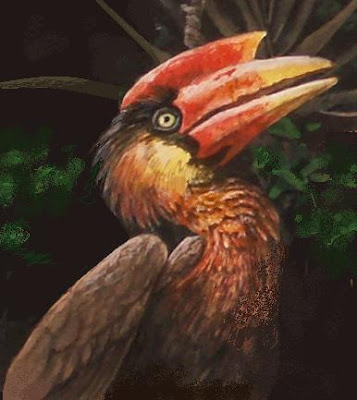THE MOST VULNERABLE ONES
 Ninety-seven years ago this month, a pigeon named Martha died in the Cincinnati Zoo. She was the last member of a species that had numbered around 5 billion just a century earlier—the most abundant bird on the planet. Exterminated for its impact on agriculture and commercially hunted for food, the Passenger Pigeon (Ectopistes migratorius) was completely eradicated in a few decades with 19th century technology.. How was such a thing possible?
Ninety-seven years ago this month, a pigeon named Martha died in the Cincinnati Zoo. She was the last member of a species that had numbered around 5 billion just a century earlier—the most abundant bird on the planet. Exterminated for its impact on agriculture and commercially hunted for food, the Passenger Pigeon (Ectopistes migratorius) was completely eradicated in a few decades with 19th century technology.. How was such a thing possible?Three and a half years later, the same zoo lost another resident. “Inca” was the last Carolina Parakeet (Conuropsis carolinensis), a notorious raider of orchards and another once plentiful species brought to extinction in surprisingly short order. These two birds certainly weren't the only animals to have been subjected to intense hunting pressures, which begs the question, why did they succumb? What enabled egrets to survive a similar onslaught during the seller's market for their plumes? Why do jackrabbits and pocket-gophers continue to thrive in the face of centuries of concerted efforts to effect their elimination?
Over the past few centuries, hundreds of species have fallen victim to the changes wrought by Humans. Very few of these, though, could have been called plentiful. What was it about the American Bison that made it possible to reduce its vast herds from 50 million to a few hundred individuals within a century? Last century, the US Government's program to eradicate Gray Wolves and Coyotes managed to wipe the former species from the lower 48 within 35 years while Coyotes, seemingly oblivious to the campaign, increased their numbers to fill the gap. What can explain this?
If you haven't yet figured out the common thread, it's that all of these creatures are extremely social. We all understand the advantages of societies, but they come with their liabilities, too. Obviously, living in social groups makes it possible for large numbers of animals to perish in a single event, but probably more important is the fact that social creatures are dependent on their societies. Once a society is fragmented beyond a certain point, it ceases to be viable. Ancient Roman generals understood this principle when they practiced decimation, the killing of ten percent of a newly conquered population, weakening the culture to the point that assimilation was possible. Fragment the society further and it becomes moribund.
 I contemplate these gregarious ghosts of the past as Utah's congressional delegation lobs the latest volley in the ongoing war over the Utah Prairie Dog (Cynomys parvidens), smallest and rarest of the five prairie dog species. It is restricted to parts of six counties in southwestern Utah, a region with one of the fastest-growing human populations in the country. Poisoning campaigns reduced an estimated 95,000 adults occupying 1,800 sq. km. in 1920 to a current population estimated at just under 8,000 adults occupying 28 sq. km. and falling. The IUCN lists the Utah Prairie Dog as endangered, but the USFWS, under the influence of agricultural lobbying, continues to list the species as threatened. Worst of all for the prairie dogs, they're extremely social.
I contemplate these gregarious ghosts of the past as Utah's congressional delegation lobs the latest volley in the ongoing war over the Utah Prairie Dog (Cynomys parvidens), smallest and rarest of the five prairie dog species. It is restricted to parts of six counties in southwestern Utah, a region with one of the fastest-growing human populations in the country. Poisoning campaigns reduced an estimated 95,000 adults occupying 1,800 sq. km. in 1920 to a current population estimated at just under 8,000 adults occupying 28 sq. km. and falling. The IUCN lists the Utah Prairie Dog as endangered, but the USFWS, under the influence of agricultural lobbying, continues to list the species as threatened. Worst of all for the prairie dogs, they're extremely social._____________________
upper: Passenger Pigeon (1898) by J.G. Hubbard (public domain)
lower: White-tailed Prairie Dog (closest relative of the Utah Prairie Dog 2004) by CPBvK






4 Comments:
Very thought provoking, thank you Carel.
I must admit that this is one great insight. It surely gives a company the opportunity to get in on the ground floor and really take part in creating something special and tailored to their needs. Agen Sbobet 338A
God blessa youse -Fr. Sarducci, ol SNL
Hey very nice blog!! Guy .. Excellent .. Amazing .. I will bookmark your site and take the feeds also?I am glad to find numerous useful info here in the put up, we want work out more techniques in this regard, thanks for sharing
sarana303
Post a Comment
<< Home